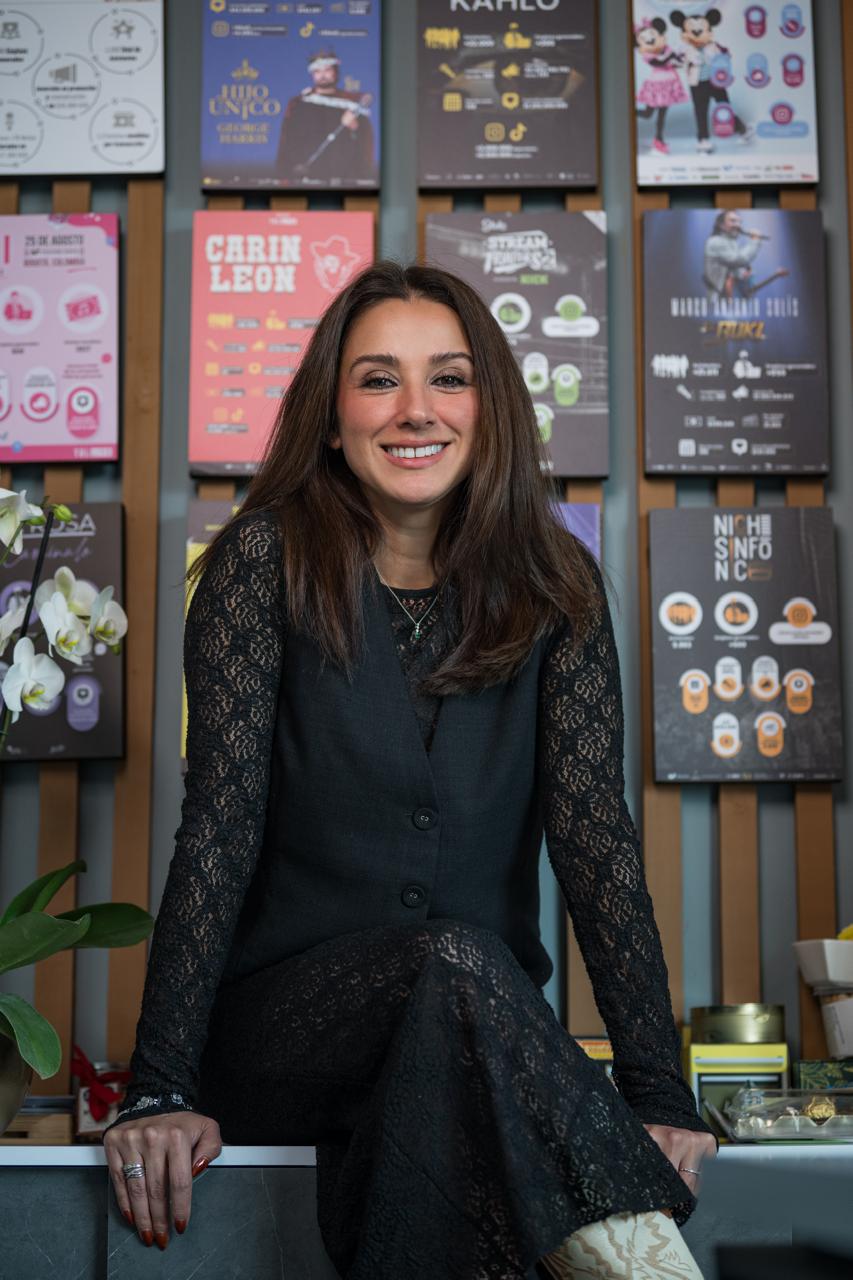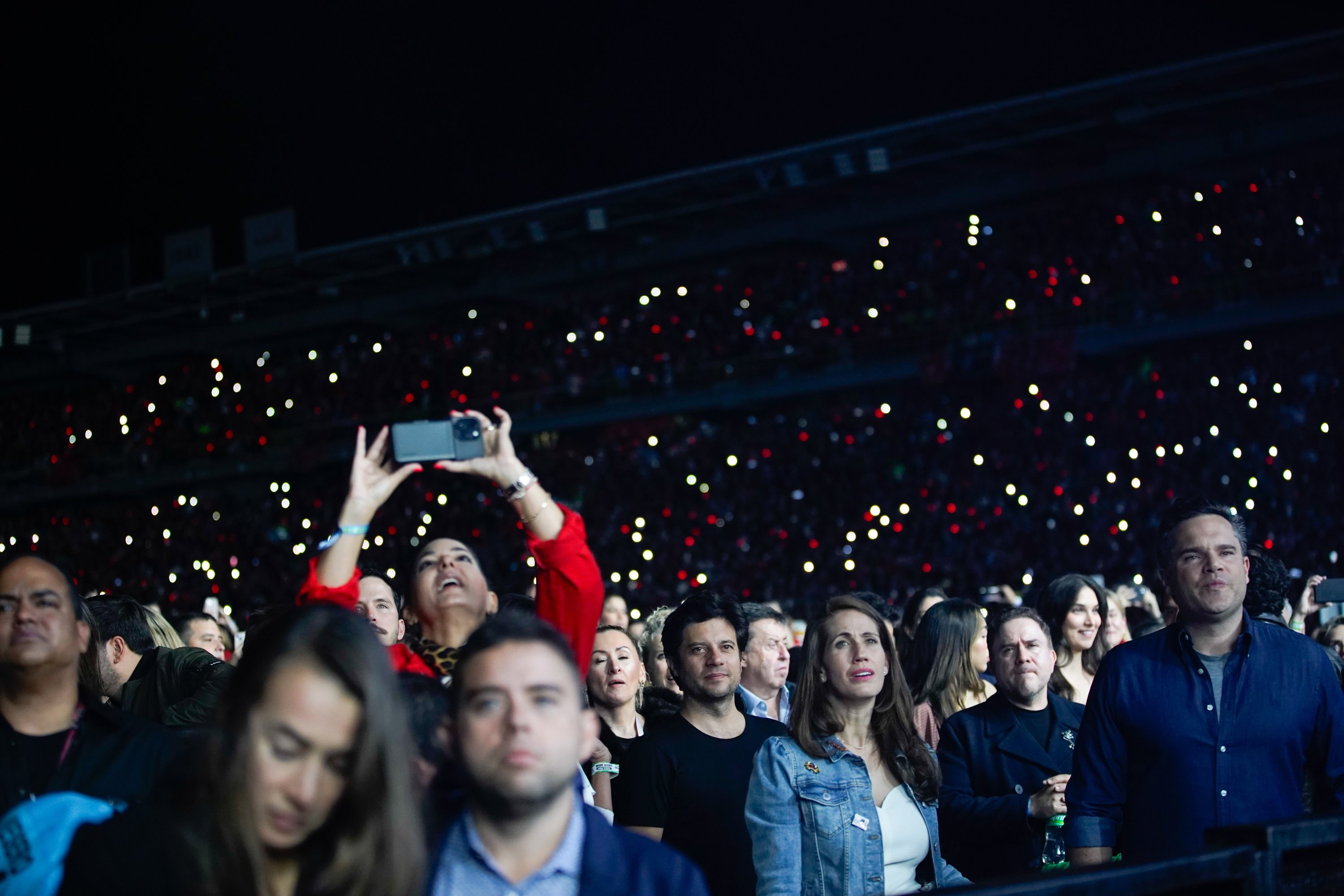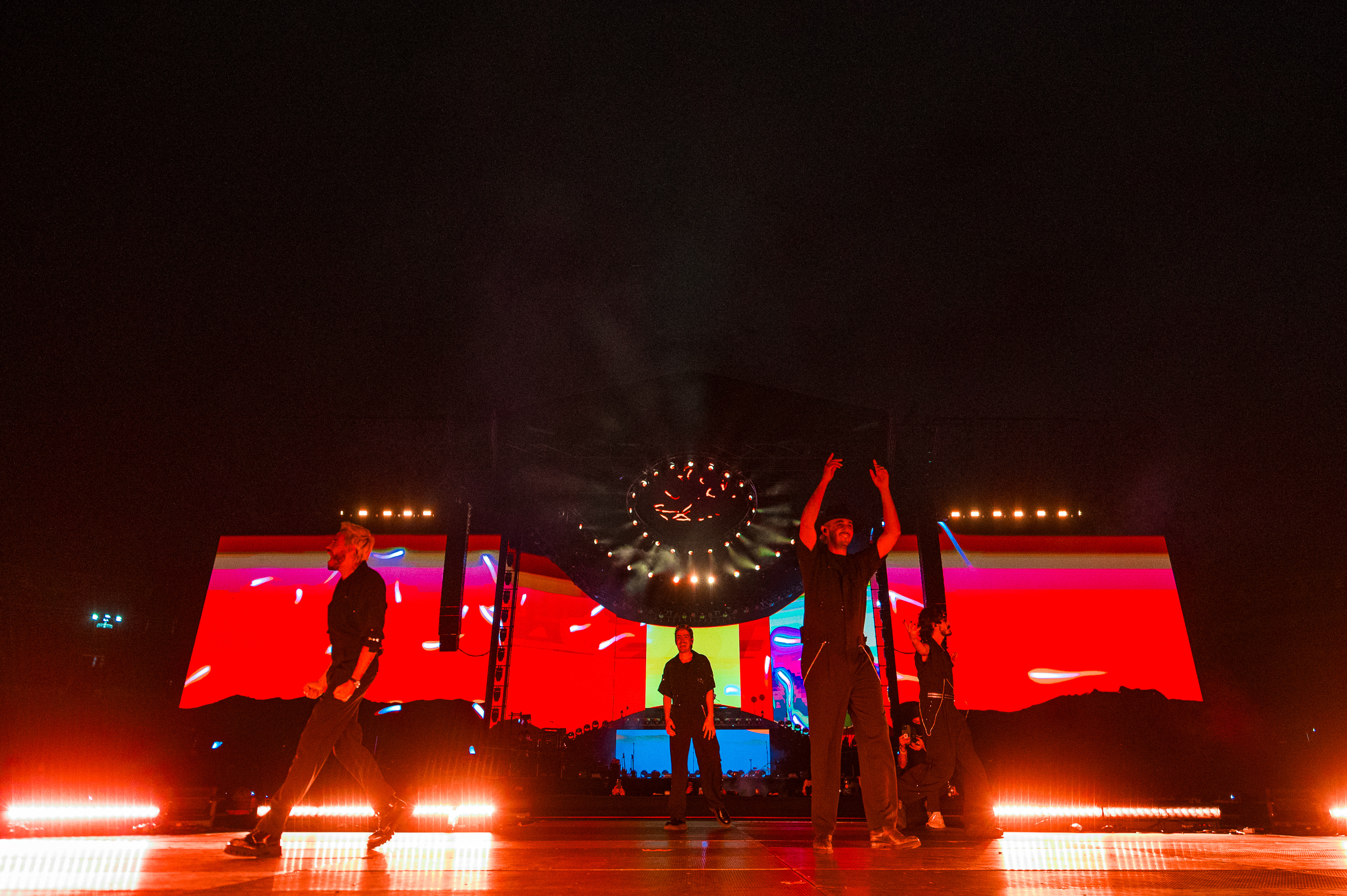'Festivals are facing a global crisis': Breakfast Live manager Andrea Valencia talks about the industry

After the pandemic, it seems that people in Colombia are determined to sing and dance to all the songs they couldn't enjoy during lockdown. In the streets, at events, and at concerts, the enthusiasm is palpable. That's why sold-out shows at venues like the Movistar Arena and El Campín are becoming more and more frequent. The variety of artists coming to the country has grown, and the organizing companies are finding ways to please fans of all musical genres.
Breakfast Live is one of the companies dedicated to event production. It began operating a year ago, following the merger of Breakfast Club—with over ten years of experience in the entertainment industry—and TBL Live , a Colombian live show production company founded in 2018.
In just one year, and leveraging the experience of its founders, this new company has proven itself competent in the industry. It has understood the challenges of producing events like Tomorrowland Core, La Solar, and concerts by artists such as Los Tigres del Norte, Juan Luis Guerra, Morat, and Toto, bringing the best of live music to audiences.
This, in a sector that has gained relevance not only due to the artists who now focus their attention on Colombia, but also for its contribution to the economic growth of Bogotá and the country as a whole. An example of this is that the capital generated, in 2024, a total economic impact of 328 billion pesos, which represents approximately 0.16% of the city's Gross Domestic Product (GDP) in the first half of the year.
This also demonstrates how large concert organizing companies have evolved over the years. In the case of Breakfast Live, the company has implemented new strategies; one of them was appointing Andrea Valencia as general manager. She told EL TIEMPO about the ins and outs of the industry, the challenges facing the sector, and how a young but dynamic company should project itself to compete with the entertainment giants.

Andrea Valencia, general manager of Breakfast Live. Photo: Breakfast Live
One of the main challenges is maintaining sustainable and profitable growth for the company, to become the most valued in the industry, something that isn't so easy in this business. The profit margins for event promoters are very low and the risks are very high, so we will focus on that.
We also need to work hard on audience growth. Breakfast Live was founded a year ago, but it's supported by two companies we joined (TBL and Breakfast Club), both with their own audiences. The idea is to work much harder on building those audiences, elevating them, and continuing to build on our motto, which is "we are fans of the fans." That also means getting to know our audiences better, to understand what they want, how they want it, and how they feel when they attend our events.
How is the situation with the festivals? We currently have several festivals: La Solar, Ritvales, Core de Tomorrowland, and the Vallenato Legend Festival. What we're working on is precisely to continue transforming festivals and taking them to the next level. It's no secret that festivals worldwide are experiencing a crisis, and we want to be prepared and transform large events into unique and different concepts.
It's also necessary to invest in national talent, which we've been doing for a while. We've encouraged artists to present their work at the Movistar Arena and have also begun to integrate them into our festivals.
We will also begin expanding into other countries. Ultimately, we want to be the company or developer everyone wants to work with, becoming everyone's best partner, always being responsive, with a strong network of contacts, and teamwork.

Concerts filled stadiums this year. Photo: Sergio Acero / EL TIEMPO
In times of crisis, one starts to think about what to invest in and what not to. Furthermore, there are so many events on offer today that people are forced to choose. Factors such as price, payment options, and advance event planning become key. We try to offer different sales stages, alternative payment methods, and savings options. This is where Tu Boleta, our ally, is key. They help us offer diverse payment methods, scheduled savings, and mechanisms that facilitate access to events.
In Colombia, entertainment consumption has changed. Today, it's a fundamental part of life, especially among young people. Going to concerts and festivals is part of their well-being, even their mental health. They make us happy . That's why we must make an effort to maintain affordable prices, even if it's difficult. We're affected by the dollar, the cost of artists—who are increasingly valued—and productions—which are larger and more expensive.
What does a company have to do to position itself in the industry in such a short time, as Breakfast Live has done? This industry is very closed and competitive. We're independent promoters; we don't belong to large global economic groups, so it hasn't been easy. But the combined history of both companies has helped us. We're business owners who deliver, who work hand in hand with artists and their agencies, and who care about fans and helping artists grow. Ultimately, promoters are the bridge between artists and fans.
We've worked very diligently to maintain a good image, be respectful, and show that we do things differently. This has given us international visibility and has made many agencies aware of who we are. Last year, we were the second-largest promoter in the country: we held 47 events and sold more than 420,000 tickets in our first year of operation .

Morat on the stage of Bogotá's El Campín stadium during their first performance - Photo: Mateo Valbuena/UNIVERSAL MUSIC
With so many events, availability is increasingly tight. Plus, you have to adjust to the artist's schedule. But in the case of the Movistar Arena, they have a very transparent way of operating. There are clear policies, and if another promoter has first choice, they inform us immediately.
Fortunately, Bogotá also has other venues that are either adapting or have recently arrived. We already have more than four spaces that provide us with alternative venues to bring in talent if we don't have availability at our main venue.
And how does the dynamic work with the artist? To access an artist, the key is "routing," that is, their tour schedule. If they have dates in Latin America or Mexico, they're more likely to be brought in. The agencies inform us when an artist is going on tour and ask if we're interested. In that case, we make an offer.
There are very specific cases in which a "one-off" can be achieved, that is , a unique show in the country. But this is very rare, expensive, and difficult to achieve. Often, even if an artist is getting a lot of buzz, we have to wait until they are interested in coming to Colombia or until their tour stops here.
Typically, tours start in the United States, then move on to Europe, and finally to Latin America. That's when we can perform.
María Jimena Delgado Díaz
eltiempo





%3Aformat(jpg)%3Aquality(99)%3Awatermark(f.elconfidencial.com%2Ffile%2Fbae%2Feea%2Ffde%2Fbaeeeafde1b3229287b0c008f7602058.png%2C0%2C275%2C1)%2Ff.elconfidencial.com%2Foriginal%2F506%2Fd3b%2F97a%2F506d3b97a8e329fb7355504e1060218f.jpg&w=3840&q=100)